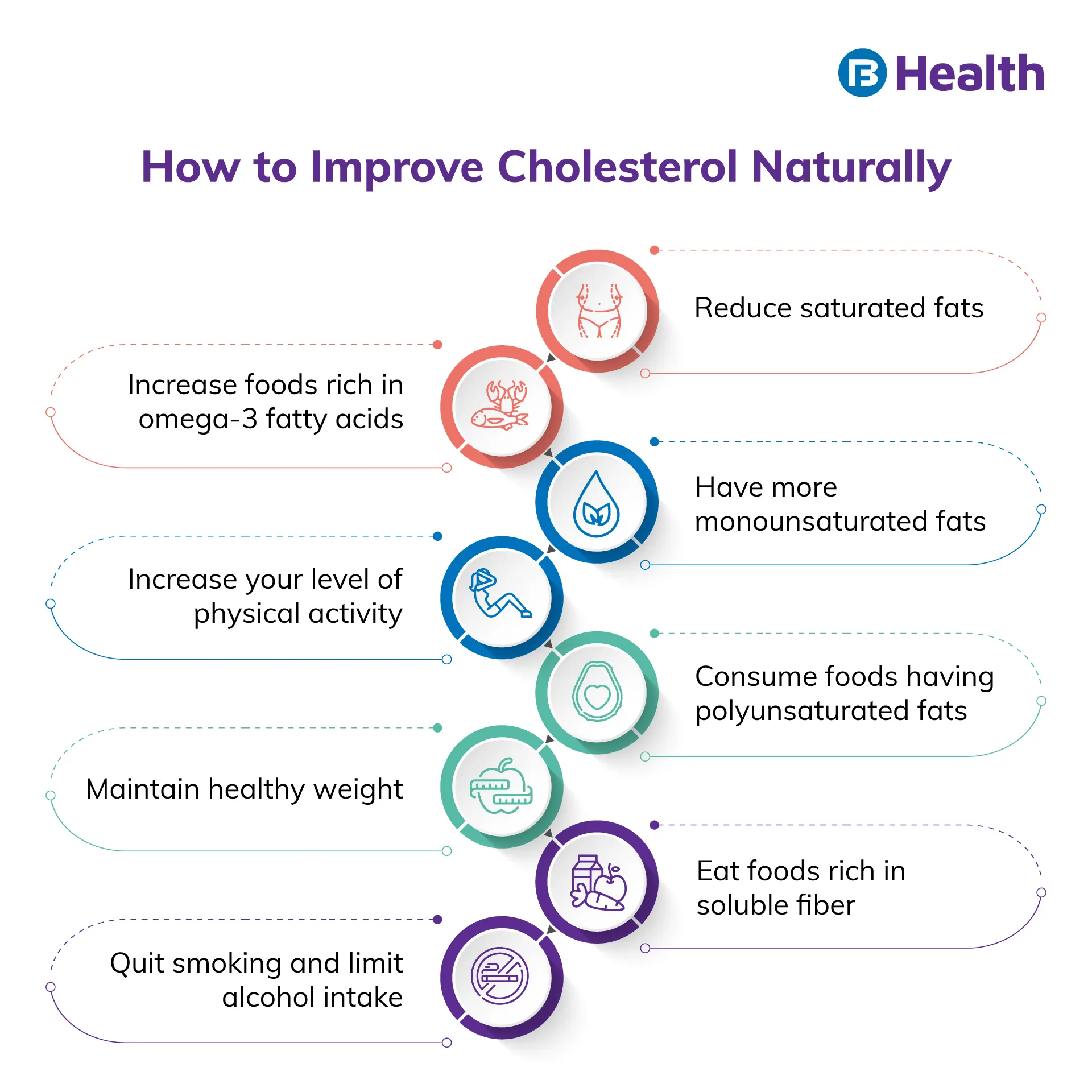Cholesterol | 4 min read
Lipoprotein (a) Test: How is it Done and Its Results Meaning
Medically reviewed by
Table of Content
Key Takeaways
- Lipoprotein (a) is a type of bad cholesterol found in our body
- A lipoprotein (a) test is done if you a have risk of heart disease
- Lipoprotein (a) normal range is always below 30 mg/dL
Lipoproteins are substances made of protein and fat. They carry cholesterol through your bloodstream. Cholesterol is of two types namely, high-density lipoprotein (HDL) and low-density lipoprotein (LDL). HDL is a good cholesterol while LDL is bad cholesterol. Lipoprotein (a) is a type of LDL or bad cholesterol.
An enzyme called lipoprotein lipase plays a vital role in breaking down fats carried by two different types of lipoproteins. Lipoprotein (a) high means there is an increased risk of heart disease and stroke [1].
Doctors usually test for HDL, LDL, triglycerides, and total cholesterol levels. A lipoprotein (a) test provides detailed information by measuring its levels in your blood. Read on to know more about the lipoprotein (a) test.
 Additional Read: Lipid Profile Test
Additional Read: Lipid Profile TestWhy is a lipoprotein (a) test done?
A lipoprotein (a) test is not a routine test. It is not commonly used to evaluate cholesterol levels. Your doctor may order this test in certain situations:
- If other blood tests indicate an increased risk of heart disease
- If other lipid tests results are normal but you have heart disease
- If you have a family history of heart disease especially at an early age
- If you have risk factors for heart disease such as diabetes or hypertension
- If you have an existing heart problem or cardiovascular disease
- If you have high cholesterol even after following a healthy diet
- If your high LDL levels do not respond to treatment
- If you recently had a heart attack or a stroke
- If you are postmenopausal with increased risk factors for heart disease
Doctors may suggest a lipoprotein (a) test if they suspect a risk of stroke, heart attack, or other heart ailments. An increased level of lipoprotein (a) causes inflammation in the arteries and changes in your blood vessels. With the help of this test, doctors can easily determine the amount of lipoprotein (a) in your blood for a better diagnosis.
How is a lipoprotein (a) test done?
The lipoprotein (a) test follows the standard blood test procedure. A trained nurse, doctor, or healthcare professional will take a blood sample from the vein of your arm using a small needle. The blood sample is then collected into a vial or test tube and sent to a laboratory for analysis. Once the lab reports are ready, your doctor will inform you if any further evaluation is required.
The lab test procedure usually takes less than five minutes to complete. You may feel a sting when the needle is inserted and taken out during the procedure. You do not have to make any special preparations for the test. In case you are undergoing other tests like the cholesterol test, you may have to fast for 9 to 12 hours before the blood test.
What are the risks of the lipoprotein (a) test?
There are usually little to no risks during a lipoprotein (a) test. But you may feel slight discomfort during the procedure, as with any other blood test. You may experience pain, bruising, or throbbing at the injected site. These symptoms usually subside soon. In rare cases, the following risks may occur:
- Excessive bleeding
- Fainting due to blood loss
- Hematoma, accumulation of blood under the skin
- Skin infection at the injection site due to the needle
- Difficulty in drawing blood from the vein that may require multiple pricks
What does the lipoprotein (a) result mean?
The lipoprotein (a) normal range is less than 30 milligrams per deciliter (mg/dL) [2]. If you have lipoprotein (a) high levels of more than 30 mg/dL, it may indicate an increased risk of stroke, atherosclerosis, or heart disease. The lipoprotein (a) test results may differ based on the laboratory where your blood sample gets tested.
Your doctor will be better able to inform you about your test results as the level is determined by your genes. Lifestyle or medications do not affect it. But, if the test results depict high lipoprotein (a), your doctor may treat your overall cholesterol levels to reduce the risk of heart disease. Your healthcare provider may prescribe medicines and advise you to make lifestyle changes. This includes modifying your diet, exercising, reducing stress, controlling weight, and lowering LDL cholesterol [3].
Additional Read: Types of Blood TestIf you have high lipoprotein (a) symptoms, take measures to lower the levels. Consult your physician to treat and manage high cholesterol diseases. Now you can consult with top doctors of your choice on Bajaj Finserv Health. Get the best health advice via a doctor online consult from home and keep the lipoprotein (a) in your body under check.
References
- https://www.who.int/data/gho/indicator-metadata-registry/imr-details/3236
- https://www.ucsfhealth.org/medical-tests/lipoprotein-a
- https://medlineplus.gov/lab-tests/lipoprotein-a-blood-test/
Disclaimer
Please note that this article is solely meant for informational purposes and Bajaj Finserv Health Limited (“BFHL”) does not shoulder any responsibility of the views/advice/information expressed/given by the writer/reviewer/originator. This article should not be considered as a substitute for any medical advice, diagnosis or treatment. Always consult with your trusted physician/qualified healthcare professional to evaluate your medical condition. The above article has been reviewed by a qualified doctor and BFHL is not responsible for any damages for any information or services provided by any third party.






